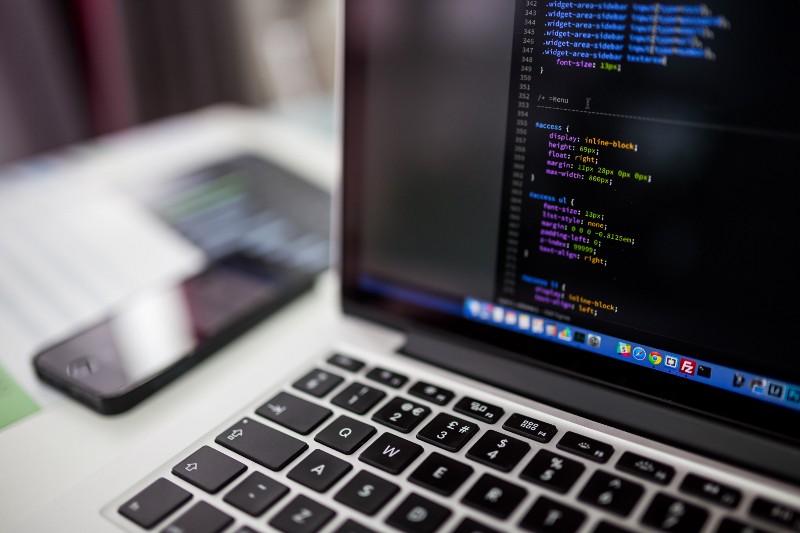Don’t Fear Code in Web Development
Don’t Fear Code in Web Development coding: the very word can send shivers down the spine of many aspiring web developers. It conjures images of endless lines of cryptic symbols, inscrutable errors, and the dreaded “syntax error” messages that feel more like a personal attack than a learning opportunity. But here’s the secret: coding is not a beast to be feared but a powerful tool waiting to be mastered. Embracing fearless web coding can transform your journey into one of creativity, problem-solving, and continuous growth.

The web development universe is vast and vibrant. From sleek landing pages to complex single-page applications, code is the invisible engine driving every digital experience. The question is, how do you cross the threshold from intimidation to confidence? This article unpacks how to cultivate a mindset of courage and mastery over code, making your web development endeavors not just achievable but exhilarating.
Understanding the Fear Factor
The first step to overcoming fear is recognizing its roots. For many beginners, the intimidation around coding arises from:
- The perceived complexity of programming languages.
- The fear of making mistakes and breaking things.
- The overwhelming pace of technological evolution.
- The myths about coding being only for “geniuses” or “math wizards.”
These psychological barriers are more common than you think, and they are entirely surmountable. Developing fearless web coding starts with dismantling these mental walls.
Language as a Learning Process
Think of programming languages as dialects in the lingua franca of computers. HTML, CSS, JavaScript—they’re just different ways to communicate with the machine, not magical incantations only accessible to an elite few. Each has its own syntax and grammar, but they follow logical rules that, with practice, become intuitive.
By shifting perspective from “I must memorize everything” to “I need to understand patterns and logic,” you create a learning environment where mistakes are stepping stones, not failures.
Embracing Mistakes: The Unsung Heroes of Growth
Nothing beats practical experience when it comes to learning code. Encountering bugs and errors is inevitable, but these “failures” are often misunderstood. Each error message is a guidepost pointing you toward improvement.
In fact, fearless coders view debugging as a detective game. Why is the app crashing? Which line caused the unexpected behavior? What assumptions did I make that proved wrong? This inquisitive mindset turns frustration into fascination.
Tools for Tackling Errors
Modern development environments and browsers come equipped with powerful debugging tools. Chrome DevTools, VS Code’s integrated debugger, and logging libraries can illuminate the darkest corners of your code.
Using these tools methodically can reduce the fear around errors. They transform unknowns into visible clues, empowering you to pinpoint issues with surgical precision.
The Role of Community: Learning Is a Team Sport
No coder is an island. From Stack Overflow to GitHub communities and Discord channels, vast networks exist where questions are welcomed and shared knowledge thrives. Engaging with these communities can help eradicate the fear of coding alone.
By participating in open source projects or peer coding sessions, beginners gain real-world context and mentorship. These experiences cultivate fearless web coding by normalizing challenges and offering collective wisdom.
Incremental Learning: The Power of Micro-Mastery
The vast expanse of web development can be paralyzing when viewed as a monolithic mountain to climb. The antidote? Break it down into manageable bites.
Focus on one small skill or concept at a time:
- Understand how to structure a basic HTML page.
- Master CSS selectors and styling properties.
- Write simple JavaScript functions.
- Build tiny projects like a to-do list or calculator.
This stepwise approach builds confidence. Each success, no matter how minor, reinforces the belief that you can conquer more complex challenges.
Code as a Creative Medium
Coding is often mistaken for a purely logical pursuit, but it’s equally a creative art form. It’s the brush with which you paint interactive experiences, the chisel shaping digital sculptures.
This perspective shift makes fearless web coding a process of exploration and expression rather than a rote mechanical task. When you realize code can bring your ideas to life—be it a dynamic portfolio, a game, or a social platform—the motivation to push through uncertainty grows exponentially.
Modern Tools That Lower the Barrier to Entry
Today’s development ecosystem offers countless tools that ease the coding process. Low-code and no-code platforms enable rapid prototyping without writing complex code, serving as springboards into deeper programming knowledge.
However, diving into the code remains invaluable for full customization and control. Frameworks like React, Vue, and Svelte come with extensive documentation and community support, making entry smoother. Leveraging code generators, linters, and type checkers also reduce errors and boost confidence.
Mindful Practices to Maintain Momentum
Fear often creeps in when motivation dips or when the learning curve steepens. Cultivating habits to sustain enthusiasm is essential:
- Set realistic goals and celebrate progress.
- Pair coding sessions with deliberate breaks to avoid burnout.
- Maintain a journal of challenges and solutions to track growth.
- Seek feedback and be open to constructive criticism.
These practices fortify a resilient mindset, essential for fearless web coding.
Real-World Examples: Stories of Fearless Coders
Many successful developers once stood where you do now—facing fear, confusion, and self-doubt.
Take the story of Ada, a graphic designer who feared the code behind her visions. Through incremental learning and active community participation, she transitioned into a full-stack developer leading projects. Or Jamal, who battled imposter syndrome daily but found solace in open-source contributions and pair programming.
Their journeys illustrate that fear isn’t a permanent state but a gateway to transformation.
The Importance of Problem-Solving Mindset
At its core, coding is problem solving. Instead of focusing on memorizing syntax, approach coding as a logical puzzle. Break problems down, hypothesize solutions, test, and iterate.
This mindset fosters analytical thinking and reduces anxiety by framing code as a tool to solve tangible challenges.
Staying Updated Without Overwhelm
The tech world evolves rapidly, and keeping pace can be daunting. However, fearless web coding includes the ability to discern relevant trends and gradually integrate new knowledge without feeling overwhelmed.
Subscribe to curated newsletters, follow trusted industry voices, and practice continuous learning in digestible portions.
Beyond Code: Soft Skills that Empower Developers
Coding skills alone don’t create fearless developers. Communication, collaboration, and time management amplify technical proficiency.
Writing clear documentation, articulating problems and solutions, and effectively managing projects build professional confidence and reduce stress.
The Future Is Fearless: Your Journey Starts Now
The path to mastering web development is strewn with challenges, but none are insurmountable. Embracing fearless web coding means welcoming uncertainty as a natural companion to growth.
Remember, every expert was once a beginner staring at their first line of code, wondering if they could ever make sense of it. The difference? They chose courage over hesitation.
Coding is a superpower—a means to innovate, connect, and inspire. With the right mindset, tools, and community, you can unlock its potential and make the web a playground for your ideas.
Dive in. Experiment wildly. Make mistakes boldly. Your fearless journey through code is just beginning.







